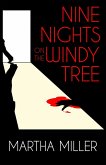Giovanni Verga (1840-1922) is the most important of the Italian Realist School of novelists. The story deals with a family of fishermen who work and live in Aci Trezza, a small Sicilian village near Catania. The novel possesses a choral aspect, and depicts characters united by the same culture, but divided by ancient rivalries.Verga adopts the impersonality technique, reproducing some features of the dialect and adapting himself to the point of view of the characters. In doing so, he renounces the customary mediation of the narrator.
Bitte wählen Sie Ihr Anliegen aus.
Rechnungen
Retourenschein anfordern
Bestellstatus
Storno









